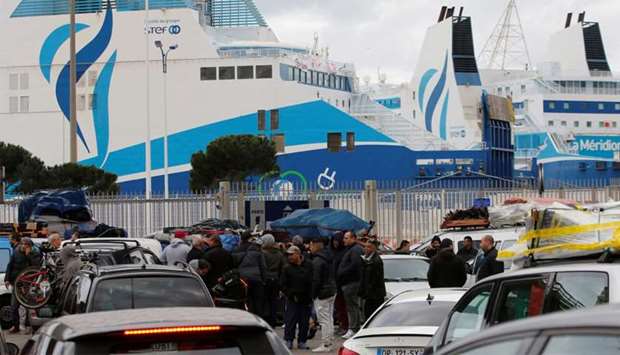French public transport was closer to normal service on Wednesday, more than 40 days into a strike against President Emmanuel Macron's pension reform plans.
For the first time since hardline unions launched strike action on December 5, a majority of the Paris metro's 16 lines were set to run from morning until early evening at least.
Most metro lines have been running a restricted service at peak hours only during the strike, leading Parisians to crowd onto buses and vie for rides on city hire bikes and electric scooters.
Railway operator SNCF said eight out of 10 high-speed TGV trains and regional services would run as scheduled.
Under Macron's plan to replace the country's multiple pension schemes with a single national system, rail and public transport workers are set to see their right to retirement at age 52 or 57 phased out.
Other workers fear a drop in their pension entitlements as new pensions will be based on lifelong earnings.
The main schemes currently calculate pensions on the basis of the employee's best 25 years of earnings, in the private sector, or last six months, in the public sector.
The government says the new system will be fairer and will deal better with increasingly fractured career paths in the contemporary economy.
Prime Minister Edouard Philippe placated France's biggest union, the moderate CFDT, at the weekend by provisionally withdrawing a short-term raise in the standard age for retirement on a full pension from 62 to 64.
But that concession was conditional on unions coming up with an alternative way to prevent pension schemes going into the red without either reducing pensions or raising contributions.
The hardline CGT union, which has spearheaded strikes and protests, was unimpressed.
Broadcaster FranceInfo reported that seven of the country's main seaports were completely or partly blocked on Wednesday by strike action.

